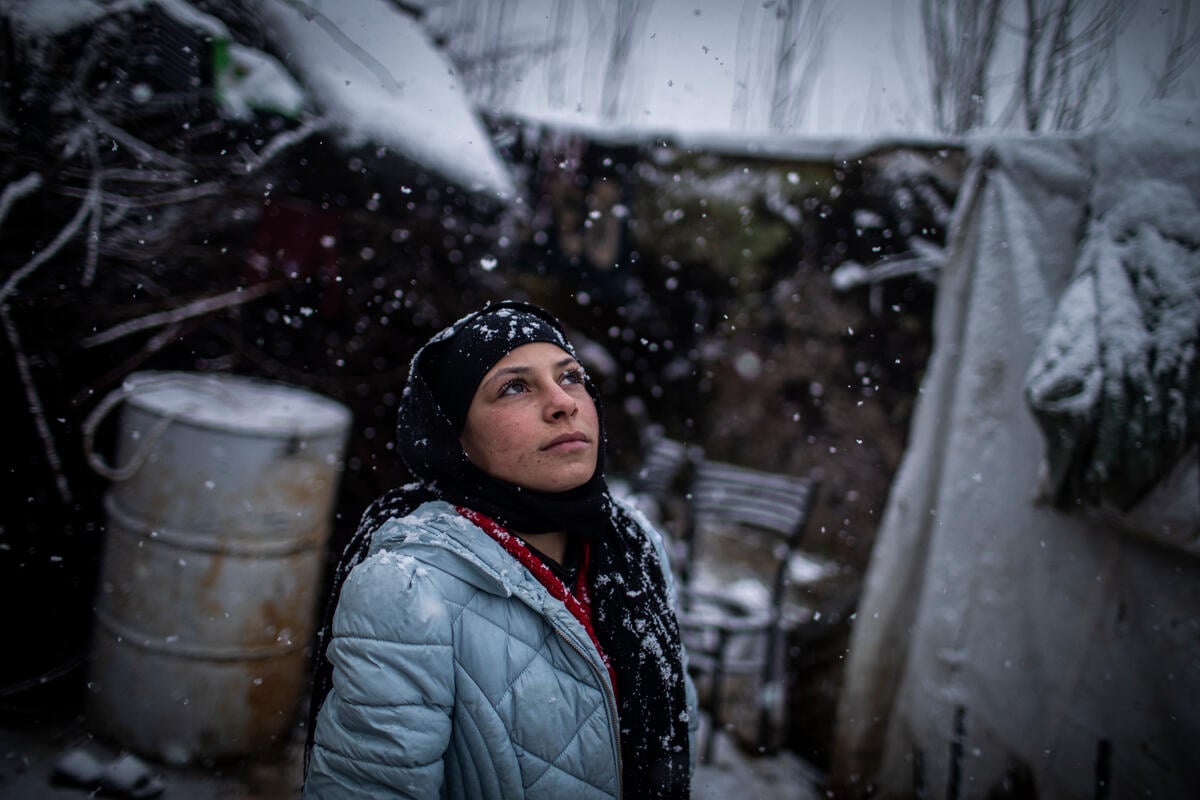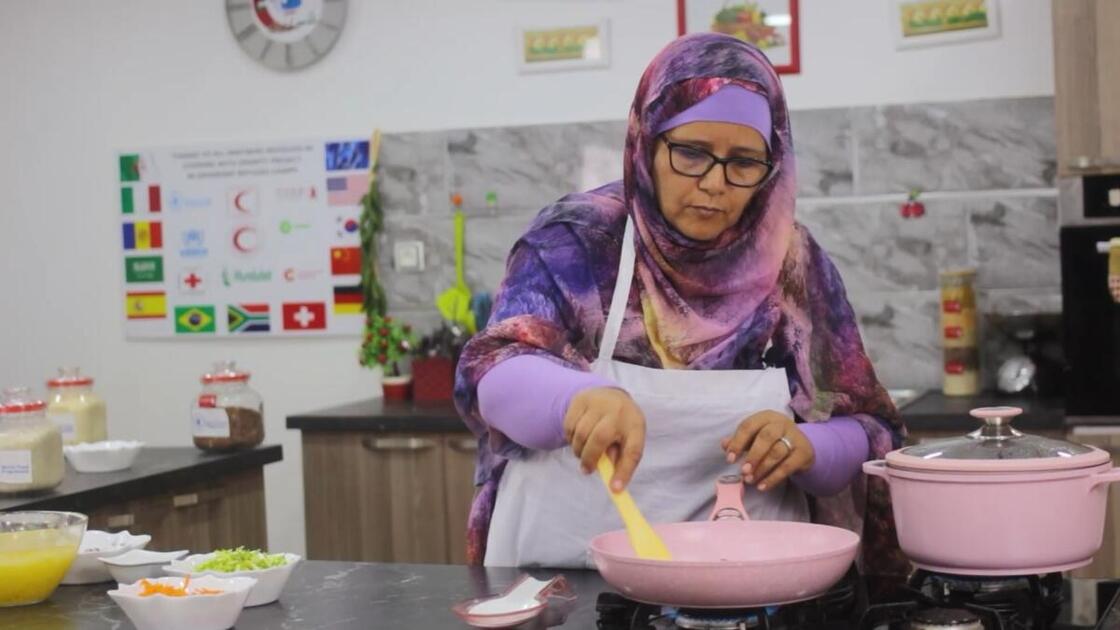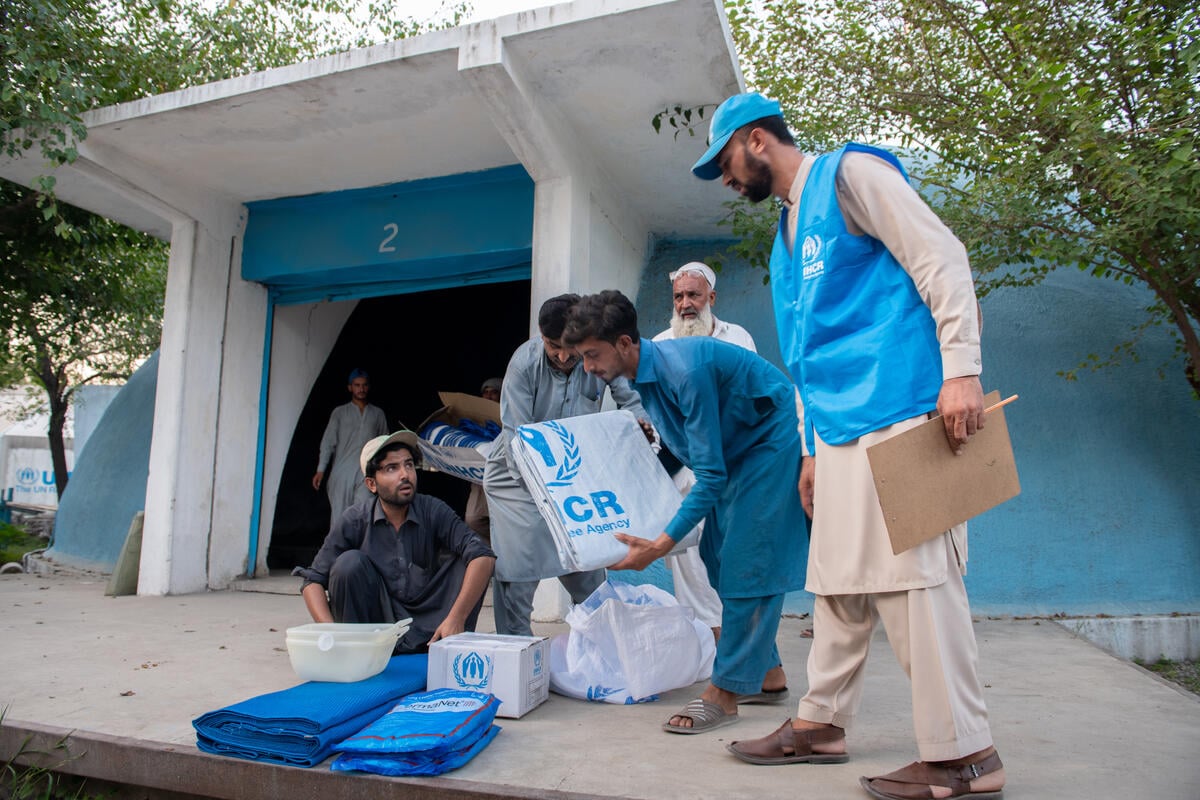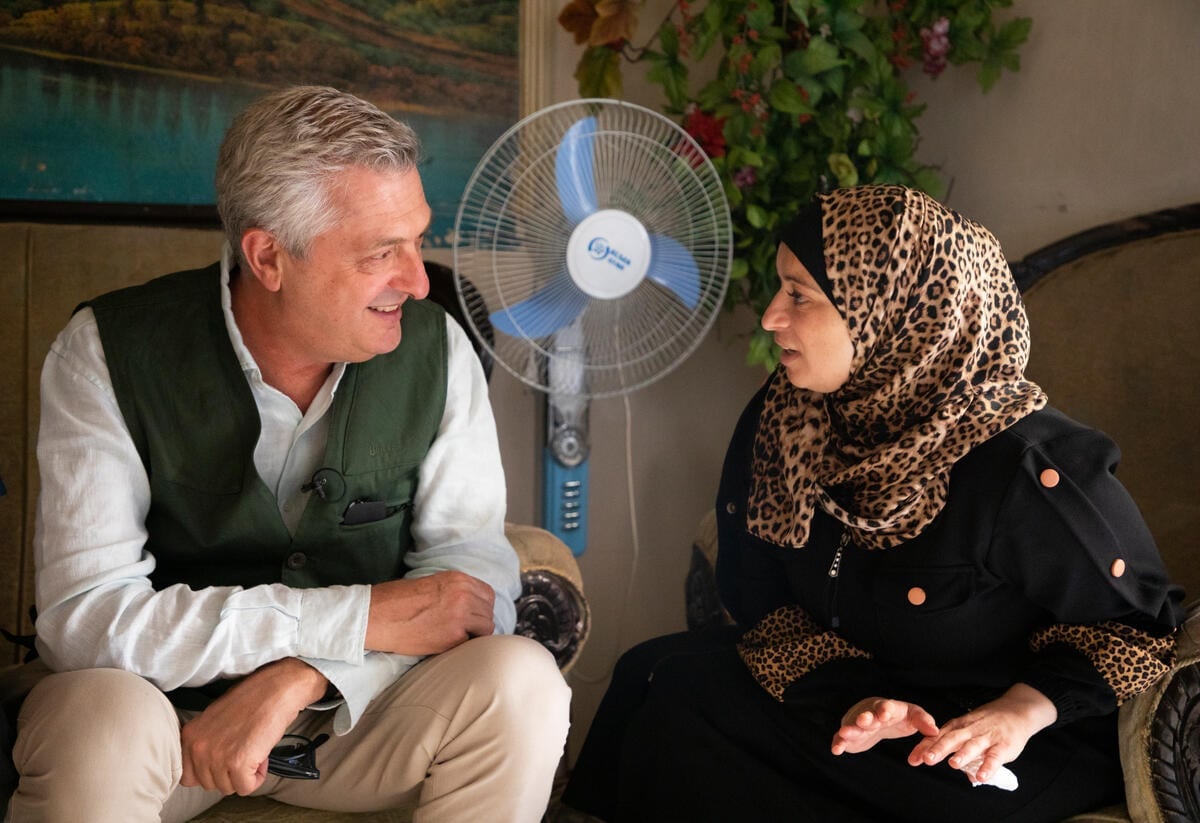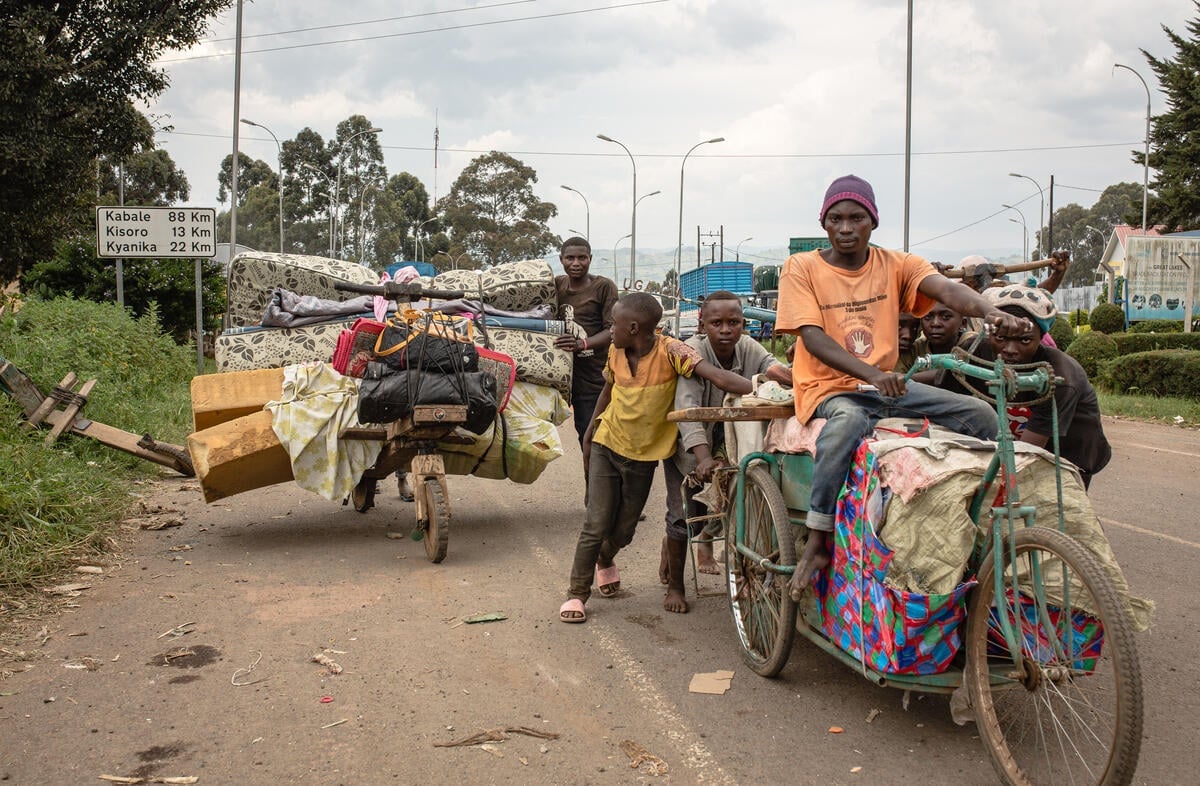Vital aid reaches starving Syrians in besieged towns
Vital aid reaches starving Syrians in besieged towns

MADAYA, Syria, Jan 11 (UNHCR) - The UN Refugee Agency today took part in a convoy of trucks that delivered life-saving aid of food and blankets to thousands of people trapped in dire conditions in besieged Syrian towns on Monday.
The first trucks in a convoy of more than 40 vehicles delivered the aid to rebel-held Madaya, a small mountain town about 40-kilometres northwest of Damascus, where more than 40,000 civilians have been trapped in dire conditions without aid for nearly three months.
The UN has received credible reports of people dying from starvation and being killed or injured while trying to leave the area, which last received UN humanitarian aid in October.
The first four trucks, carrying essentials including blankets and food packages of rice, oil and lentils were allowed into the town, where volunteers began unloading them in the dark, watched by groups of hungry people, including children.
"Crowds of hungry kids around," Sajjad Malik, UNHCR's representative in Syria, said in a text message from the isolated town. "It's heart-breaking to see so many hungry people. It's cold and raining but there is excitement because we are here with some food and blankets."
Aid trucks have also entered the besieged towns of Foa'a and Kefraya, near the border with Turkey in northwest Syria, where people have also been facing severe shortages of food and basic commodities, cut off without humanitarian and commercial access since October.
Additional convoys to the same locations will take place over the coming days, carrying UNHCR aid including blankets, winter clothes, jerry cans, household items and diapers.
Partner agencies are providing food and medicine through the convoys organized by the UN, the International Committee of the Red Cross (ICRC) and the Syrian Arab Red Crescent.
As the crisis in Syria nears its sixth year, up to 4.5 million people in the country live in hard-to-reach areas, including nearly 400,000 people in 15 besieged locations who do not have access to the aid that they desperately need.
In the past year, only 10 per cent of all requests to access these areas were approved and delivered.


